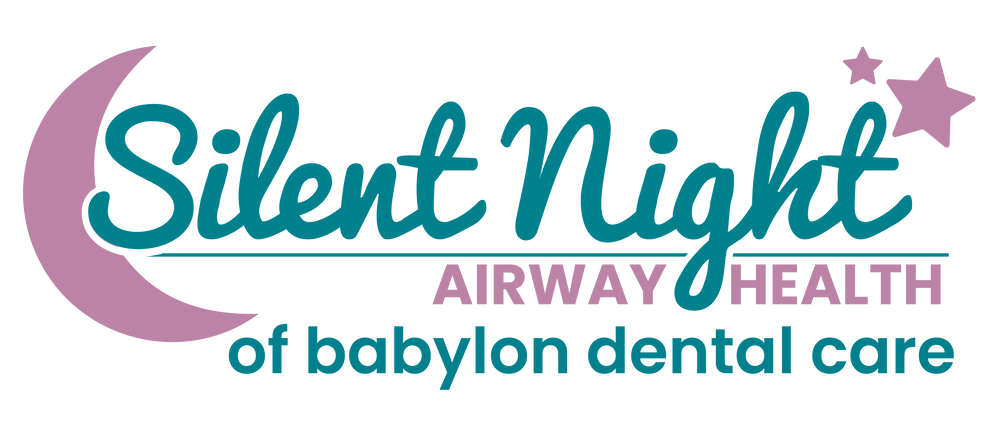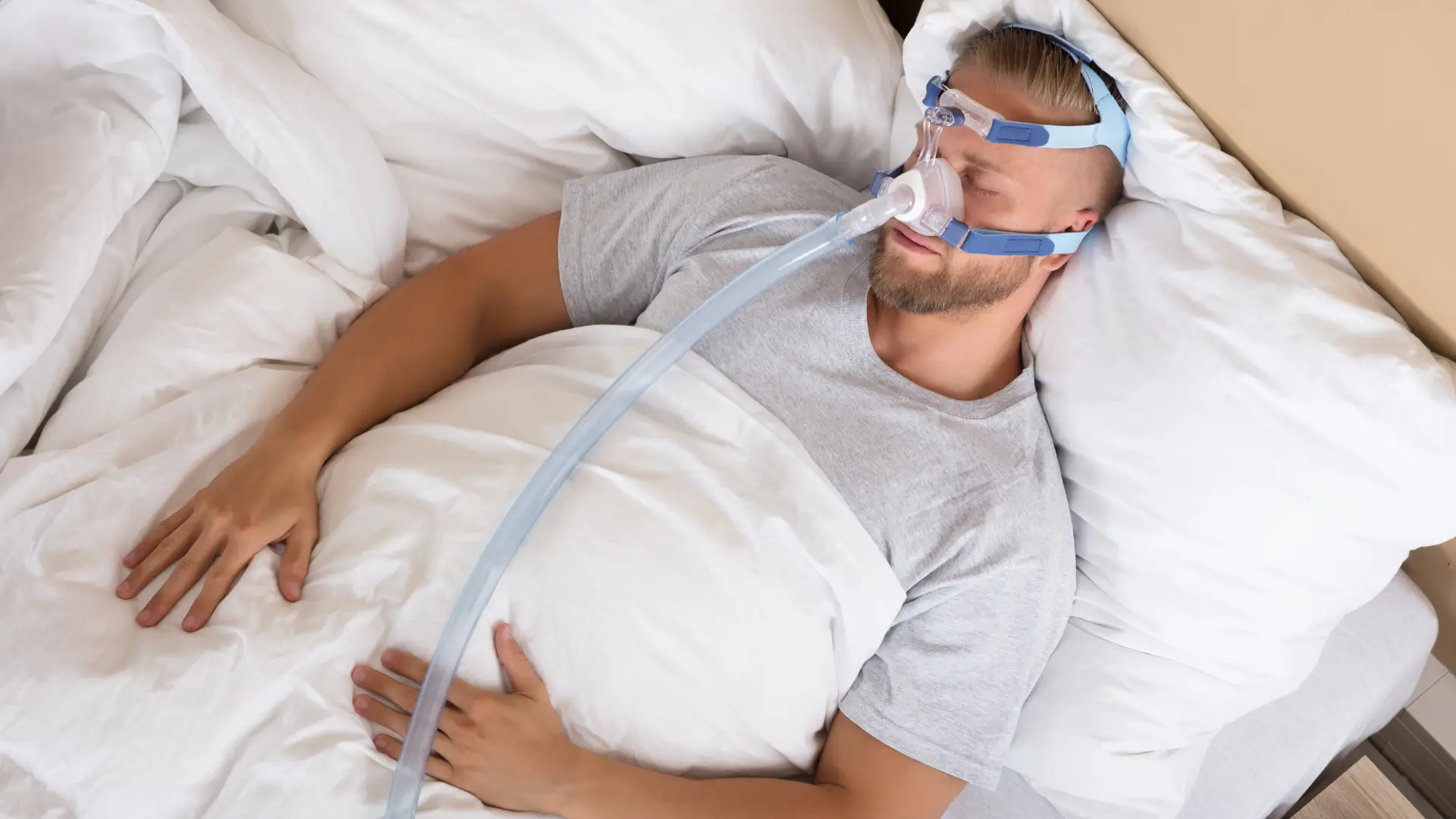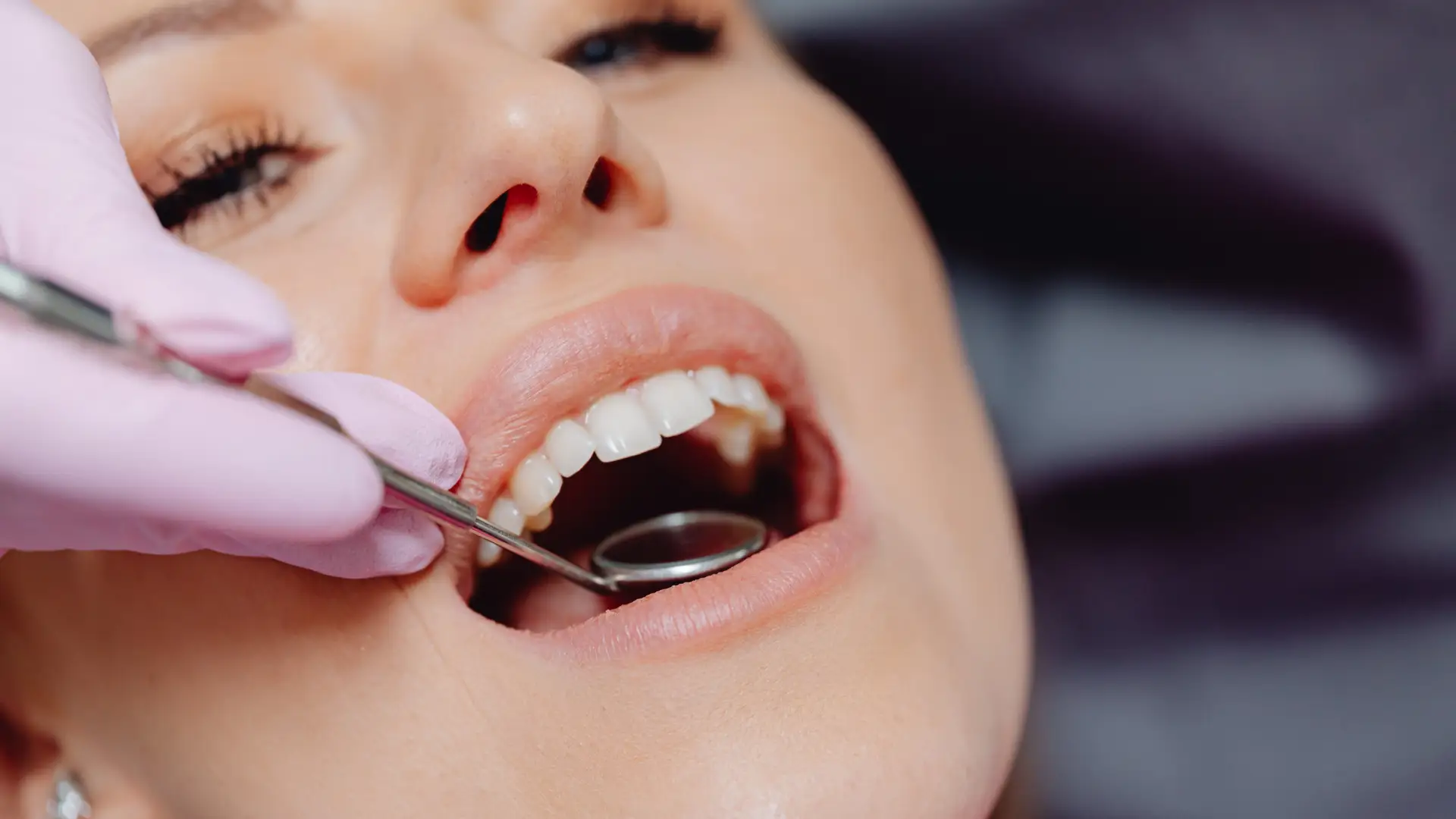The Link Between Sleep Apnea and Brain Health
Posted By:
July 15, 2025
9:00 AM
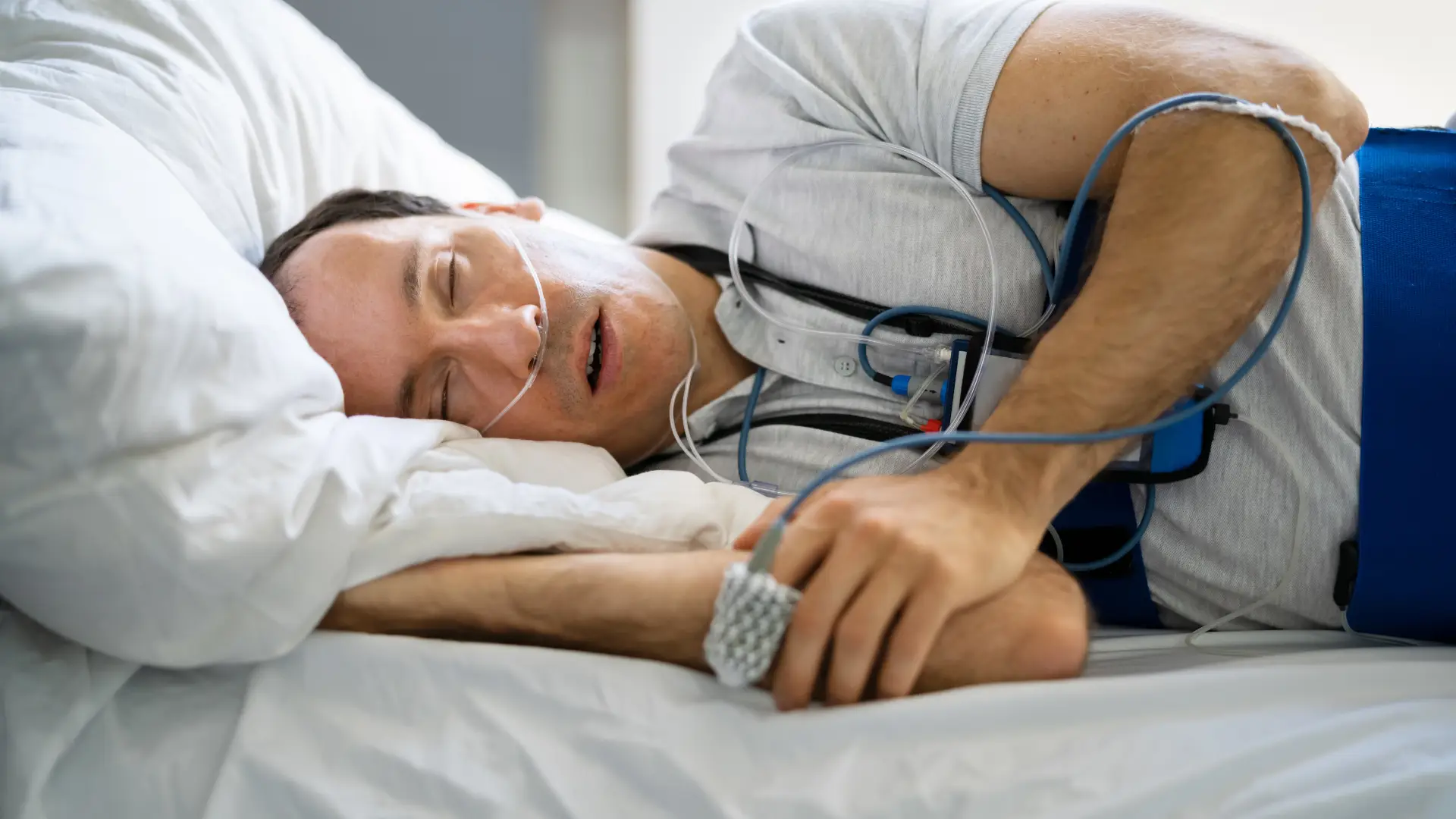
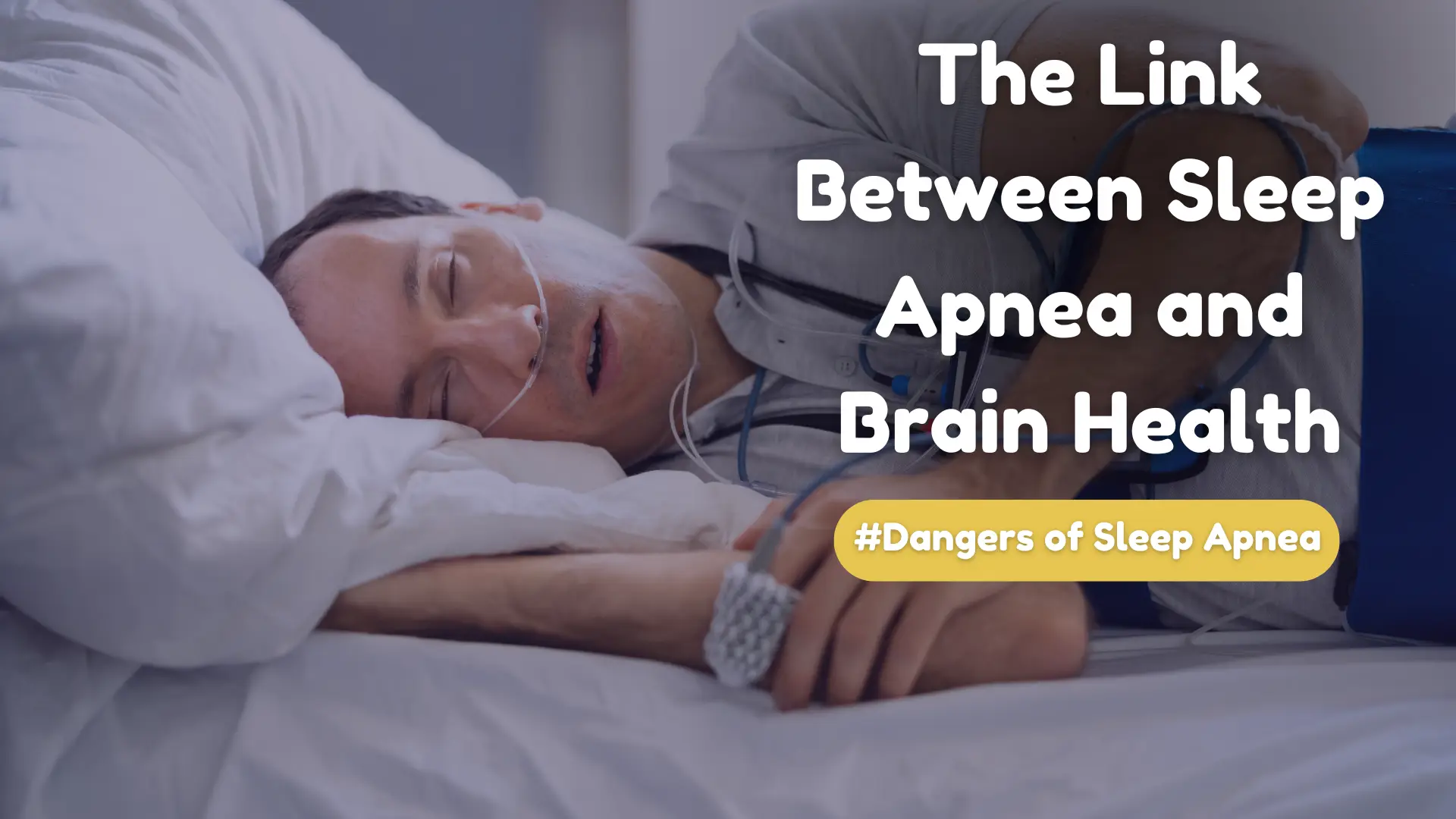
Too many people think of sleep apnea as an annoyance that prevents them from getting the rest they need, leaving them feeling drained and listless throughout the day. Unfortunately, the effects of obstructive sleep apnea can go far deeper and have a profound impact on brain health and function. Their effects influence everything from mood and concentration to long-term cognitive function.
Research has already shown connections between sleep apnea and the development of cognitive conditions like dementia and Alzheimer’s disease. Apnea also carries an increased risk for depression, anxiety, and other conditions that impact brain health. Let’s explore how sleep apnea affects the brain and how early diagnosis and treatment options can protect mental health. This knowledge can put you on the road to better physical and psychological well-being.
How Sleep Apnea Disrupts Brain Function
The most common form of sleep apnea is obstructive sleep apnea (OSA). OSA causes soft tissues in the throat, tongue, or soft palate to block the upper airway during sleep. During sleep apnea episodes, breathing repeatedly stops and starts, depriving the brain of oxygen and disrupting essential sleep cycles.
Over time, low blood oxygen levels and the disruption of natural sleep cycles can interfere with how the brain processes, stores, and recalls information. Low oxygen and sleep disruptions can reduce and impair cognitive function. This leads to daytime sleepiness, brain fog, impaired mental performance, mood changes, and irritability.
Evidence Linking Sleep Apnea to Brain Damage
Numerous studies have started to link sleep apnea to brain damage and impaired cognitive function. Research has linked sleep apnea to a significantly increased risk of the development of cognitive decline and dementia. Studies also show a relationship between sleep apnea and the development of other brain conditions such as Alzheimer’s disease, Parkinson’s disease, and stroke.
Some studies suggest that lower oxygen levels caused by sleep apnea can shrink white matter in the brain but increase the size of the hippocampus, an area responsible for memory and thinking. These brain changes disrupt normal brain function and lead to brain damage. Other research also indicates that sleep apnea can compromise the blood-brain barrier. This protective shield prevents harmful substances, like toxins and infections, from crossing from the body into the brain.
Untreated sleep apnea can also cause mood disorders like depression and anxiety, leading to mood swings, irritability, and personality changes. Sleep deprivation caused by untreated sleep apnea may also lead to paranoia, hallucinations, and impulsive behaviors, deteriorating a person’s mental health and well-being.
Can Sleep Apnea Brain Damage Be Reversed?
The research linking brain damage and cognitive decline to sleep apnea is frightening. Thankfully, studies also suggest that brain damage caused by severe sleep apnea may be reversible with sleep apnea treatment. A study published by the American Academy of Sleep Medicine indicates that participants using continuous positive airway pressure therapy showed improvements in damaged brain structures. Over time, many participants saw an almost complete reversal of white matter abnormalities in the brain.
Those involved in the study also reported improved cognitive tests, mood, alertness, energy levels, and overall quality of life, indicating that sleep apnea treatment can help restore healthy brain function.
How to Protect Your Brain from Sleep Apnea Damage
The best way to protect your brain from sleep apnea damage is to talk with your doctor. Sleep apnea affects millions of people. Unfortunately, studies show that as many as 90 percent of people with the disorder are undiagnosed. The first step to protect your brain health is talking to your doctor about your sleep issues and getting a sleep apnea diagnosis. Once diagnosed, your doctor can help you find a treatment plan that improves your sleep and reduces your risk of developing brain damage and cognitive impairments.
Continuous positive airway pressure therapy, or CPAP, is one treatment option. CPAP machines provide a consistent supply of oxygen, keep vulnerable airways open throughout the night, and may help protect the brain from the detrimental effects of sleep apnea. However, they are also bulky, intrusive, and difficult to travel with. Fortunately, there are are alternatives, including oral sleep appliances. The right appliance can provide many of the same benefits as a CPAP machine with fewer of the drawbacks.
Let Us Help You Start Your Journey to Better Sleep and Better Brain Health
At Silent Night Therapy, our team of sleep specialists is ready to help you find solutions that improve your sleep, brain health, and quality of life. Better sleep doesn’t just help you face the day with more energy and a positive attitude. It can help you sustain good brain health and function.
Take the first step today. Contact us online or call (631) 983-2463 for a complimentary sleep consultation.
Related Posts:
The Effects of Poor Sleep on Your Brain
What Happens to The Brain During a Case of Sleep Apnea?
The Link Between Sleep Apnea and Mental Health
Airway Health and Wellness: Why Breathing Better Means Living Better
